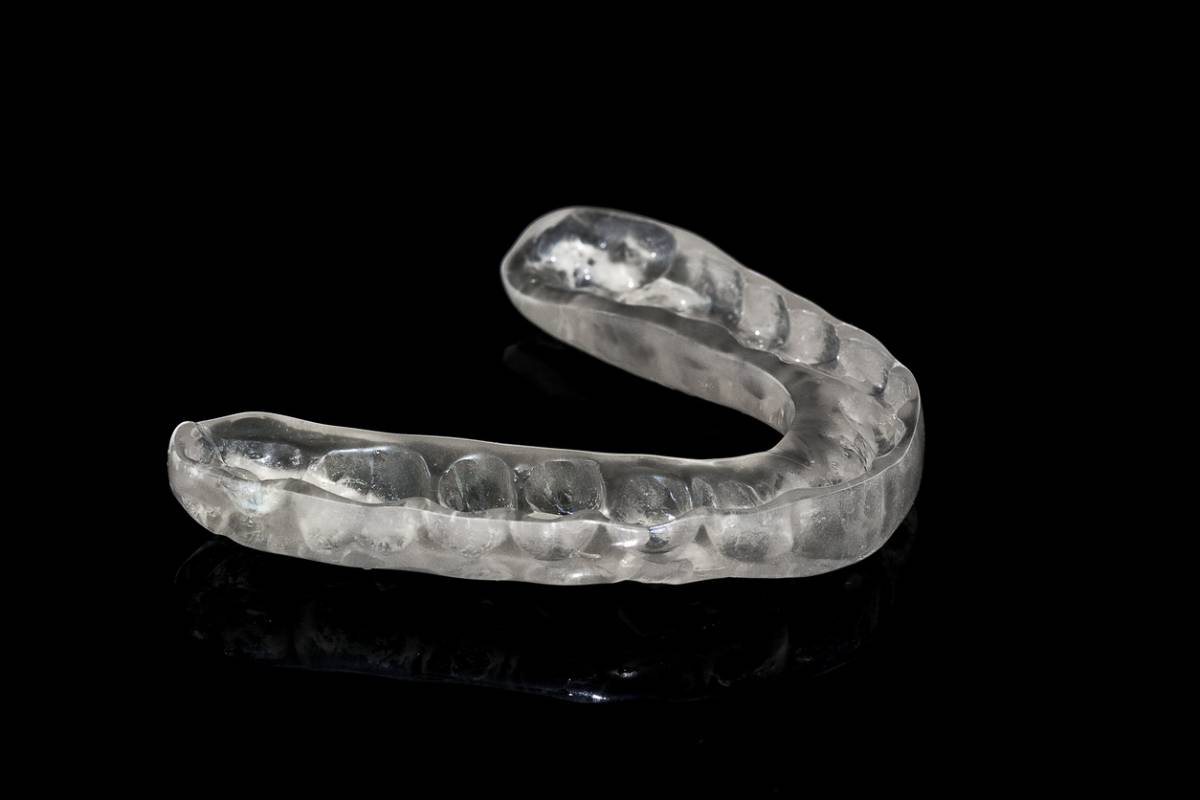The effects of bruxism can range from a mild nuisance to long-term dental health problems. While treatments vary, one of the main ways to improve symptoms is by wearing a night guard. Night guards protect your teeth while you sleep. But patients want to know: is it hard to sleep with a night guard?
Is It Hard to Sleep with a Night Guard?
A night guard is a dental appliance that you wear over your teeth while you sleep. It is designed to help reduce the effects of teeth grinding (bruxism). For that goal, the appliance usually works rather well when used properly.
However, few patients readily like the idea of keeping something in their mouth all night long. The truth is, it can be hard to sleep with a night guard at first. The initial period may come with some discomfort as you adjust to wearing it. That said, there are several caveats to keep in mind here.
Custom Fit Is Essential
Going to your local supermarket and picking up an over-the-counter night guard rarely is worth it. These night guards may provide some protection, but they will not fit perfectly. This can lead to discomfort or even pain and irritation.
Instead, visit your dentist. As an expert in bruxism, your dentist can provide two key points. First, they can determine if a night guard will even benefit you. Not all cases of teeth grinding even require a night guard. Additionally, they can have their dental lab custom make a night guard. This gives you a better-fitting appliance that is easier to adapt to.
Consistency Is Key
Humans can get used to almost anything so long as we are exposed to it enough. The same goes for night guards. Wearing your night guard regularly is essential to getting used to it. The first few nights might not be fun. And, in truth, you might never come to love it. However, you will eventually become used to wearing it, and it should not prevent you from sleeping well.
Alternatively, Start Gradually
While consistency helps some people acclimate faster, it might have the opposite effect for others. Sometimes, a gradual approach can help more.
Thickness
The thickness of your night guard will depend on the intensity of your teeth grinding. Milder grinding may require a thinner, lighter guard. But intense grinding can require a thicker one. A bulkier night guard may take longer to get used to. Still, patients tend to acclimate and sleep well even with such night guards.
Don’t Suffer in Silence
If you experience persistent pain or irritation when using your night guard, it could mean something is wrong. Even with custom-made night guards, the fit can sometimes be off if your dentist measured something incorrectly.
Never hesitate to reach out to your dentist if you find yourself consistently struggling with your night guard. They can reassess your situation and see what has gone wrong.
Don’t Give Up
We will not deny that it can start out challenging when trying to sleep with a night guard. However, untreated bruxism can wear down your teeth over time. A night guard can stand as an excellent first step in reducing the impact of the condition.
Also, keep in mind that teeth grinding may require additional treatment to fully resolve it. From injections to medication management, a number of treatments exist to help you overcome teeth grinding.
Address Teeth Grinding Today
Postponing treatment for teeth grinding can lead to long-term dental issues. As a dentist for all ages, Glendora Family Dental excels in treating bruxism for all ages. Call us today to start with a consultation.



